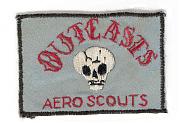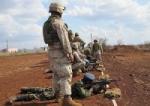...
Some suggest today that the US failure in Iraq is due simply to lack of planning; to specific policy errors— debaathification, looting, the abolition of the army, and lack of troops; and to the absence of a trained cadre of Arabists and professional nation-builders. They should consider Bell and her colleagues, such as Colonel Leachman or Bertram Thomas, a political officer on the Euphrates. All three were fluent and highly experienced Arabists, won medals from the Royal Geographical Society for their Arabian journeys, and were greatly admired for their political work. Thomas was driven from his office in Shatra by a tribal mob. Colonel Leachman, who was famed for being able to kill a tribesman dead in his own tent without a hand lifted against him, was shot in the back in Fallujah. Bell's defeat was slower but more comprehensive. Of the kingdom she created, with its Sunni monarch and Shia, Sunni, and Kurdish subjects, there is today no king, no Sunni government, and something close to civil war. Perhaps soon there will be no country.
Bell is thus both the model of a policymaker and an example of the inescapable frailty and ineptitude on the part of Western powers in the face of all that is chaotic and uncertain in the fashion for "nation-building." Despite the prejudices of her culture and the contortions of her bureaucratic environment, she was highly intelligent, articulate, and courageous. Her colleagues were talented, creative, well informed, and determined to succeed. They had an imperial confidence. They were not unduly constrained by the press or by their own bureaucracies. They were dealing with a simpler Iraq: a smaller, more rural population at a time when Arab national-ism and political Islam were yet to develop their modern strength and appeal.
But their task was still impossible. Iraqis refused to permit foreign political officers to play at founding their new nation. T.E. Lawrence was right to demand the withdrawal of every British soldier and no stronger link between Britain and Iraq than existed between Britain and Canada. For the same reason, more language training and contact with the tribes, more troops and better counterinsurgency tactics—in short a more considered imperial approach—are equally unlikely to allow the US today to build a state in Iraq, in southern Afghanistan, or Iran. If Bell is a heroine, it is not as a visionary but as a witness to the absurdity and horror of building nations for peoples with other loyalties, models, and priorities.







Bookmarks